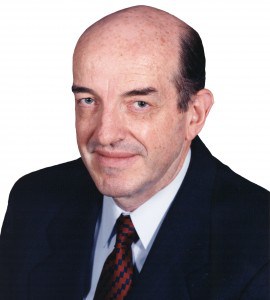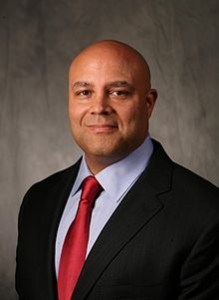Giant telecommunications companies and their lobbyist friends are gushing their approval for President Obama’s latest pick — Tom Wheeler — to head the Federal Communications Commission. What do they know that consumers don’t?
AT&T
 I’ve known Tom Wheeler for many years, and he is an inspired pick to lead the FCC. Mr. Wheeler’s combination of high intelligence, broad experience, and in-depth knowledge of the industry may, in fact, make him one of the most qualified people ever named to run the agency.
I’ve known Tom Wheeler for many years, and he is an inspired pick to lead the FCC. Mr. Wheeler’s combination of high intelligence, broad experience, and in-depth knowledge of the industry may, in fact, make him one of the most qualified people ever named to run the agency.
Mr. Wheeler will face daunting challenges at the FCC. Already the pace of technological change is clashing with outdated laws, antiquated rules, and approaches more rooted in the past than the present. The dedicated career staff at the FCC are grappling with these challenges now. If the pace of change is to continue, along with the investment and job creation that fuel it, the mission of the FCC in the 21st Century must be re-examined, and its rules and methods modernized. In this situation, I can think of no nominee more talented or whose leadership skills are more needed. Moreover, Mr. Wheeler will be joining a complement of fellow commissioners who are equally formidable and well suited for this important moment in the FCC’s history.
On behalf of AT&T, I’d like to congratulate Tom Wheeler on his nomination. We look forward to working with him once he is confirmed by the Senate. I also want to congratulate Mignon Clyburn, who will take over as interim-chair of the FCC. She’s an experienced and independent policymaker, passionate about public service, who will lead the agency over the coming months with a steady hand.
— Jim Cicconi, Senior Executive Vice President

National Cable & Telecommunications Association (NCTA) — America’s largest cable industry lobbyist
We congratulate Tom Wheeler on his nomination as Chairman of the Federal Communications Commission. With his significant experience in both the private and public sector, Tom is an exceptional choice to lead the Commission during a time when the telecommunications marketplace is experiencing significant innovation and incredible change. We welcome the appointment of Mignon Clyburn as interim chairman as she is a distinguished and able public servant. We will continue working closely with the entire Commission as they tackle important issues facing America’s dynamic media, technology and telecommunications landscape.
— Michael Powell, NCTA President & CEO and Former FCC Chairman
Comcast/NBC
 We congratulate Tom Wheeler on his nomination as Chairman of the Federal Communications Commission. His vast knowledge of the communications industry, as well as his proven leadership, will be invaluable as the Commission sets its course for our nation’s digital future. We applaud President Obama’s nomination and we look forward to working with the Commission under Tom’s leadership.
We congratulate Tom Wheeler on his nomination as Chairman of the Federal Communications Commission. His vast knowledge of the communications industry, as well as his proven leadership, will be invaluable as the Commission sets its course for our nation’s digital future. We applaud President Obama’s nomination and we look forward to working with the Commission under Tom’s leadership.
Further, we commend the President’s appointment of Mignon Clyburn as Acting Chair of the FCC. She has distinguished herself in her service as a Commissioner over the past three and a half years, and has demonstrated that she is well-suited to lead the agency. She works passionately and tirelessly to ensure that the best interests of all Americans are given serious consideration in each matter before her. We congratulate Chairwoman Clyburn on her well-deserved appointment as the first female chair of the FCC and look forward to continuing to work with the FCC under her leadership.
As current FCC Chairman Genachowski departs, we wish him the best and thank him for his very successful Chairmanship that has ensured the US remains the leader in the global communications marketplace.
— Comcast CEO Brian Roberts
 Telecommunications Industry Association
Telecommunications Industry Association
He has the proven ability to transcend a broad range of industry perspectives to reach balanced outcomes.
— Grant Seiffert, president
CTIA – The Wireless Association — America’s top wireless industry lobbyist

Tom has a deep understanding of communications issues, a passion for hard work and creative thinking, a diverse background that spans the realm of the Internet world and a keen understanding of how mobile wireless broadband can drive our economy and innovation.
I can attest to Tom’s commitment to harness the power of communications technology to improve people’s lives, to drive our global competitiveness, and to advance the public interest,” Genachowski said. “The FCC’s role has never been more essential, and with Tom’s deep policy expertise and his first-hand experience as a technology investor, he is a superb choice to advance the FCC’s mission of promoting innovation, investment, competition, and consumer protection.


 Subscribe
Subscribe







